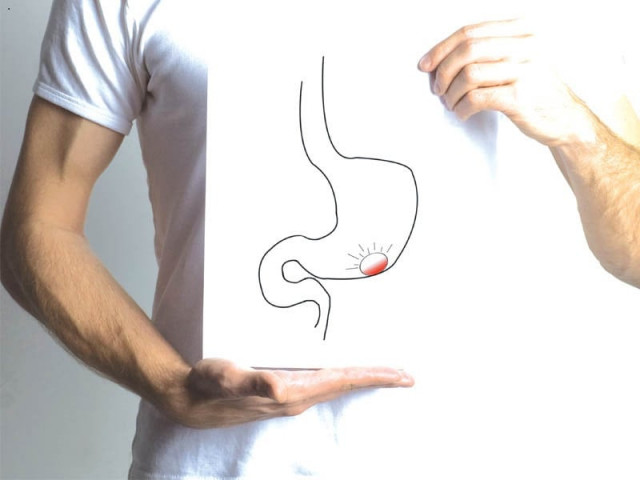Epidemic of stomach diseases hits K-P
Hundreds affected amid poor hygiene, contaminated water, and environmental hazards

Stomach and intestinal diseases have reached epidemic proportions in several districts of Khyber-Pakhtunkhwa due to poor nutrition, contaminated water, heat, and environmental pollution.
In just one week, 34,701 cases of gastro and acute diarrhea have been reported from various districts of the province.
According to the Integrated Disease Surveillance Report of the Health Department from August 26 to September 1, the highest number of cases - 4,443 - were reported from Peshawar.
Swat district is second on the list with 3,995 cases reported. Similarly, 2,556 cases have emerged from Bajaur tribal district of the province. Dera Ismail Khan and Nowshera are also two districts where various stomach diseases have taken hold, and over 2,000 affected individuals have been brought to hospitals in both districts for treatment.
Official sources told The Express Tribune that in some other districts of the province, affected individuals have been reported as follows: Shangla 1,654, Malakand 1,412, Dera Ismail Khan 1,240, Haripur 1,127, Chitral Lower 1,114, and Abbottabad 1,103.
The lowest number of affected patients - 42 - were reported in the mountainous Orakzai tribal district.
The report states that among these affected cases, there are also cases of bloody diarrhea.
Other major diseases included vector-borne diseases and skin diseases, people have fallen ill due to various skin diseases, scabies, itching, malaria, and mosquito bites.
Among them, 9,951 cases of skin diseases and 8,019 cases of malaria and other mosquito-borne diseases were reported.
According to the report, 5,802 people have been affected by various respiratory diseases.
There has also been an increase in these diseases in the current week. Around 3,636 people have been diagnosed with influenza, 1,324 with pneumonia, and 761 with typhoid.
Dr. Shams Wazir, a gastroenterologist and medical specialist at Lady Reading Hospital Peshawar, said that the weather is hot and it is still raining in many places.
From September to November, there is an increase in gastro and stomach diseases. The reasons for this include poor hygiene, people drinking substandard beverages, and lack of access to clean drinking water in many places.
Sometimes, there are sanitation issues, public toilets are not clean, and people do not wash their hands before and after eating, leading to a high number of viral gastro cases.
Dr. Wazir advised people to be mindful of the factors that cause this disease, including poor nutrition, contaminated water, and personal hygiene.
Now that schools have opened, and children share lunch and chocolates, schools should ensure that toilets are kept clean to stop the spread of these infections.
People should also be aware of the risks of using public restrooms and eating open food that may have flies on it, which can lead to various stomach and intestinal diseases.
In areas where it is raining and there is a risk of flooding, it is essential to ensure the use of clean drinking water at all costs.



















COMMENTS
Comments are moderated and generally will be posted if they are on-topic and not abusive.
For more information, please see our Comments FAQ